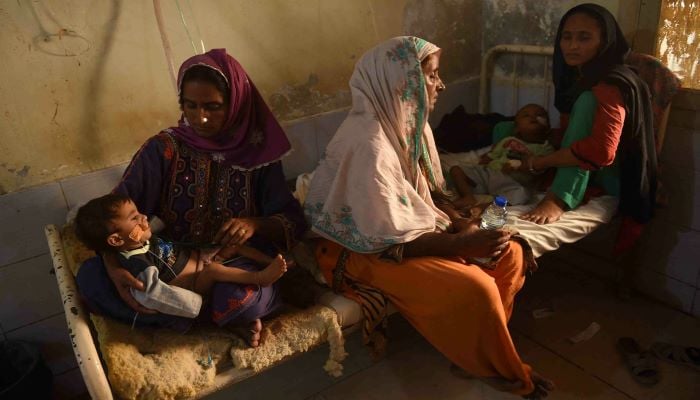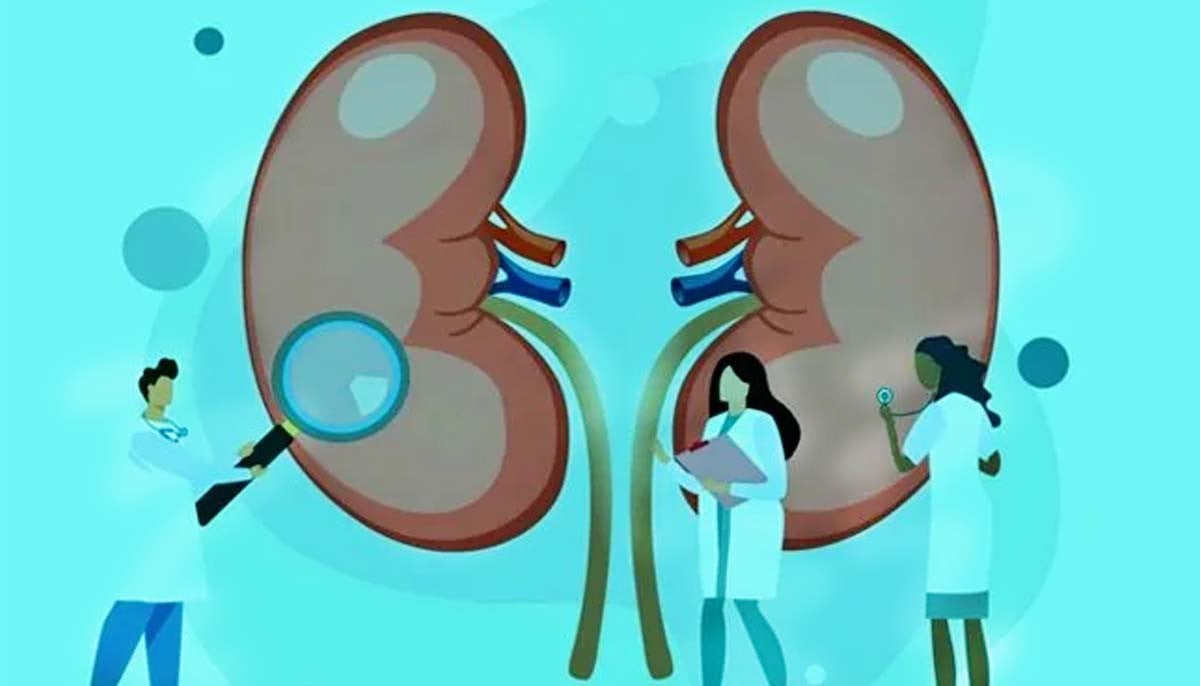Sindh, Balochistan to use army-made insecticide to rid flood-hit areas of mosquito problem
WHO has warned that widespread outbreaks of malaria and other vector-borne diseases in 32 flood-hit areas of Sindh and Balochistan are threatening thousands of lives
ISLAMABAD: The Sindh and Balochistan governments have bought hundreds of kilogrammes of a new biological pesticide made by the Pakistan Army to rid flood-hit areas of the menace of mosquitoes, federal health officials said Wednesday.
There is a looming fear of a high number of deaths from malaria, dengue fever and other vector-borne diseases in the flood-hit areas.
The biological insecticide developed by Defence Science and Technology Organization (DESTO) of the Pakistan armed forces is called ‘Moskill’.
It is successfully being used by the Pakistan Army and other armed forces units to eliminate mosquitoes in and around their establishments, an official of the National Health Services, Regulations and Coordination (NHSR&C) told The News.
The World Health Organization (WHO) has warned that widespread outbreaks of malaria and other vector-borne diseases in 32 flood-hit areas of Sindh and Balochistan are threatening thousands of lives, fearing that over 2.7 million people in these districts could contract malaria by January 2023, of which many could die if not treated.
The NHS official said in order to prevent deaths, Sindh and Balochistan have decided to apply the biological pesticide ‘Moskill’ on an experimental basis.
Officials of both governments have been trained by army officials on the use of biological chemical containing ‘Bacillus thuringeinsis’, which is a proven larvicidal bacterium, found naturally in the soil.
“Bacillus thuringeinsis is a naturally occurring soil bacteria and it is successfully being used by the United States, Canada, China, India and various other countries in Europe and Africa. DESTO has indigenously developed its Bacillus thuringeinsis based product Bti-Pk from bacteria obtained from local strains of Pakistan. This product kills mosquito larvae in stagnant waters and stops the growth and spread of all kinds of mosquitoes,” the official added.
According to the official, Moskill is an environment-friendly product which is approved by the Drug Regulatory Authority of Pakistan (DRAP) and Environmental Protection Agency (EPA) but added that both the provincial governments were using this product on an experimental basis as they had not used this kind of method before for vector control.
On the other hand, a former healthcare professional associated with the Pakistan Army said the British Indian Army had a long experience of dealing with mosquitoes, especially those that spread malaria and added that in some wars, malaria had killed more troops than the enemy, compelling the army to come up with ways and means to deal with vector-borne diseases.
“Malaria and dengue pose a serious public health challenge for the armed forces like civilian populations. The Pakistan Army is using traditional as well as research-based ways and techniques, including biotechnological based solutions to deal with mosquitoes and other vector-borne diseases to help soldiers and their families settled in the cantonment areas,” he added.
-
Living with chronic pain? This simple technique may help
-
Are your daily nasal decongestant sprays safe? Find out what experts say
-
Why depression is more than 'just in your head'
-
Study finds your morning coffee could help with type 2 diabetes
-
Westfield Bondi Junction hero Inspector Amy Scott faces rare cancer diagnosis
-
Blood pressure medication linked with suicide risk? New study explains
-
Cold weather may worsen urinary problems, physicians warn
-
Daily fish oil supplements intake may reduce cardiovascular risks, heart problems












